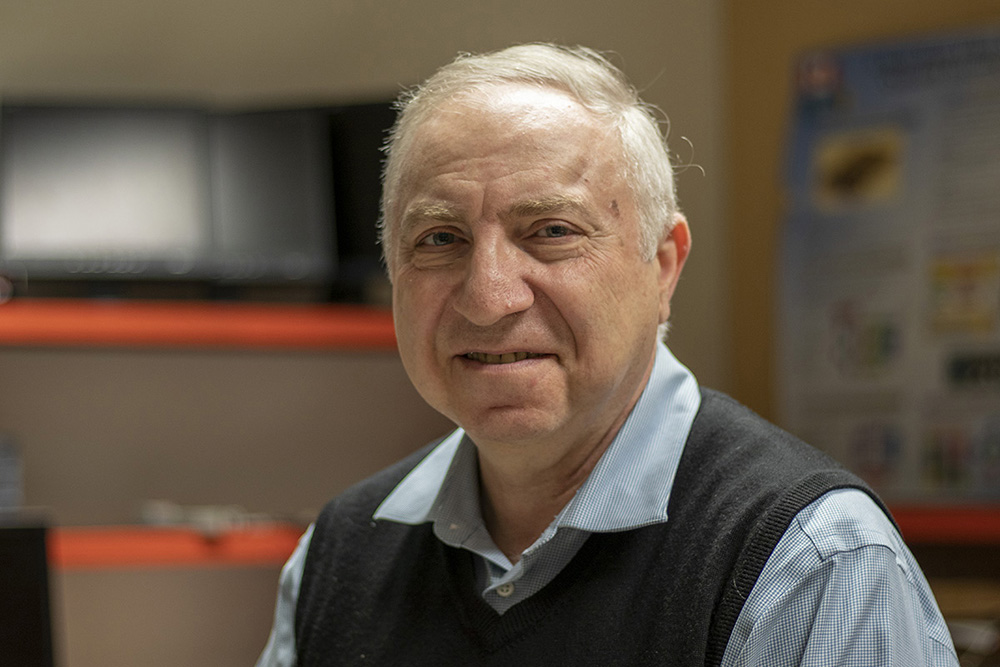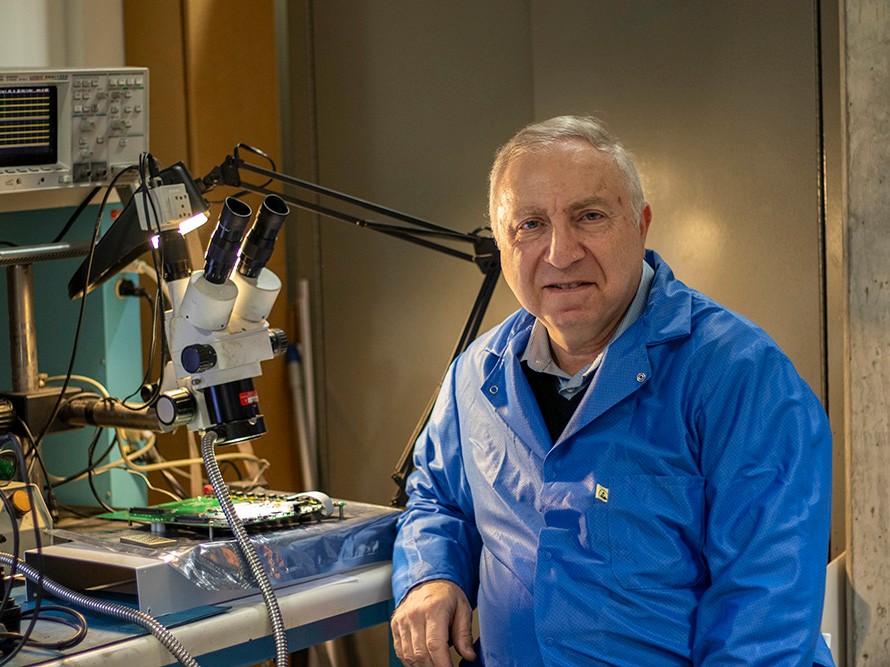Dr. Lev Kirischian
Areas of Academic Interest
Reconfigurable and adaptive computer systems
Systems-on-Programmable Chips (SoPC) synthesis and design
High-level architectural synthesis of high-performance digital systems
Architecture-to-task optimization methods and systems
Run-time self-recovery methods and mechanisms for radiation effects mitigation in FPGA-based systems
Methods and mechanisms for thermal stability in FPGA-based SoPC
Methods and mechanisms for run-time power and resource management in multi-core FPGA-based SoCs
Education
| Year | University | Degree |
|---|---|---|
| 1985 | Moscow Power Engineering Institute | PHD |
| 1978 | Moscow Institute of Aviation Technology (MAI) | MASc |
| 1976 | Moscow Institute of Aviation Technology (MAI) | BASc |
Spotlight
If you open your wallet to find a $5 note, on one side you’ll see Sir Wilfred Laurier, and on the other, a depiction of Canadarm2 and Dextre, robot systems designed to carry out installations and repairs in the International Space Station (ISS). You might be surprised to learn that there’s a Ryerson connection to this ISS marvel. “This is exactly where our technology and students are,” says Lev Kirischian. “Some prototypes of video-processing systems implementing novel concepts were made in our lab for MDA Space Missions Corporation, the developer of Canadarm. And many engineers and designers of these systems are our former PhD and master’s students.”
In the industry of space vision, advanced robotics and satellite broadcasting, Kirischian and his graduate students develop “brain”-like computing platforms that work up to 1,000 times faster than the conventional computer, while consuming about 100 times less power. “We are developing systems that can understand and dynamically adapt and algorithms that can make reconfiguration decisions much faster than human beings,” says Kirischian. “These decisions often surprise us, the designers of these systems.”

“For every one per cent of great ideas, there is 99 per cent routine work.”
- D. Sharma, V. Kirischian and L. Kirischian, “On-Chip Thermal Balancing using Dynamic Structural Adaptation in FPGA-based Multi-Task SoPC for Space-borne Applications”, In Proc. of 2019 NASA/ESA Conference on Adaptive Hardware and Systems (AHS-2019), Colchester, UK, 2019. 7 pages;
- L. Kirischian, V. Kirischian and D. Sharma, “Mitigation of Thermo-cycling Effects in Flip-Chip FPGA-based Space-borne Systems by Cyclic On-Chip Task Relocation”, In Proc. of 2018 NASA/ESA Conference on Adaptive Hardware and Systems (AHS-2018), Edinburgh, UK, 2018. 7 p pages;
- V. Dumitriu and L. Kirischian, “SoPC Self-Integration Mechanism for Seamless Architecture Adaptation to Stream Workload Variations”, IEEE Transactions on Very Large Scale Integration (VLSI) Systems (external link) , Volume: 24, Issue: 2 (external link) , Feb. 2016 pp. 799-802;
- V.Dumitriu, V. Kirischian and L. Kirischian, “Run-Time Recovery Mechanism for Transient and Permanent Hardware Faults based on Distributed, Self-Organized Dynamic Partially Reconfigurable Systems”, IEEE Transactions on Computers (external link) , Volume:65, Issue: 9 (external link) , Sept. 1 2016, pp. 2835 - 2847
- Embedded Reconfigurable Systems Laboratory
- Member, Professional Engineering Ontario (PEO)
- Member, IEEE
